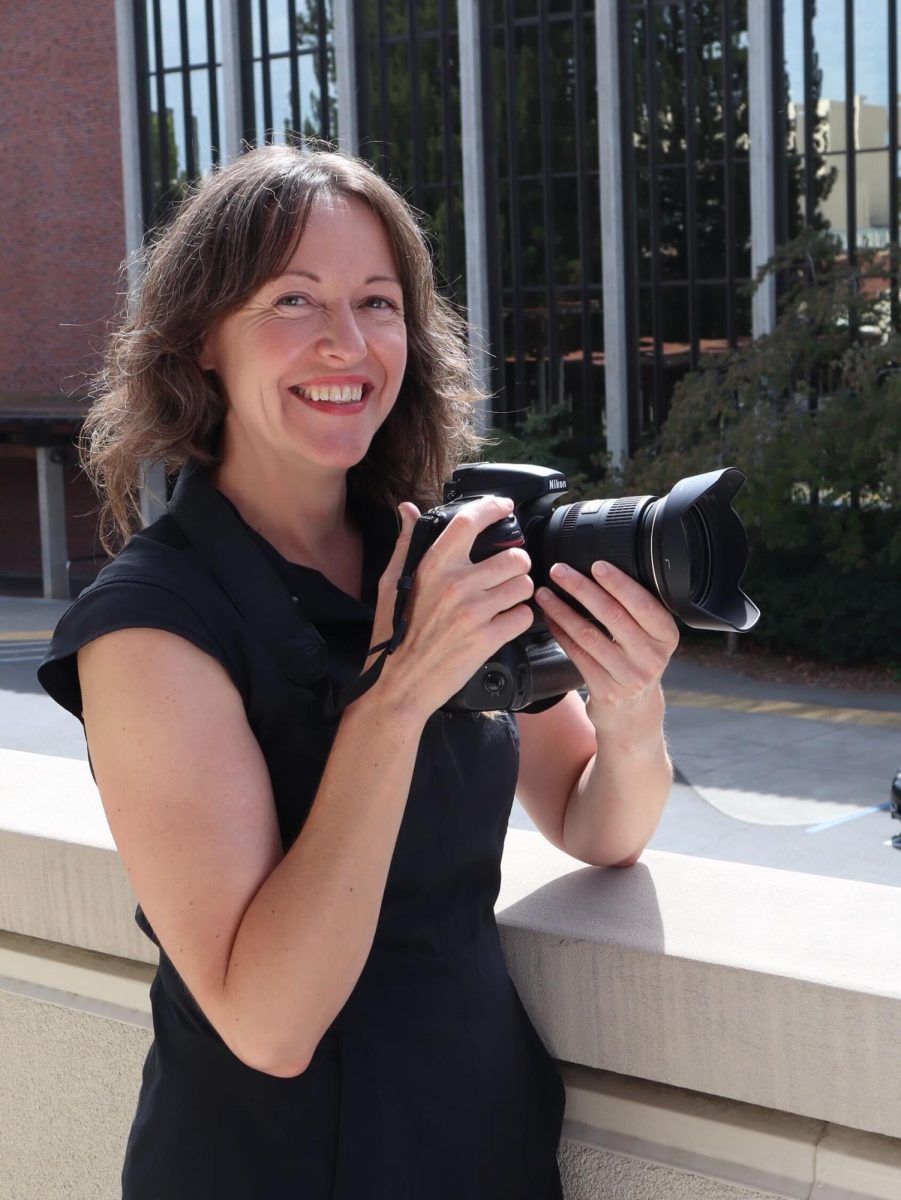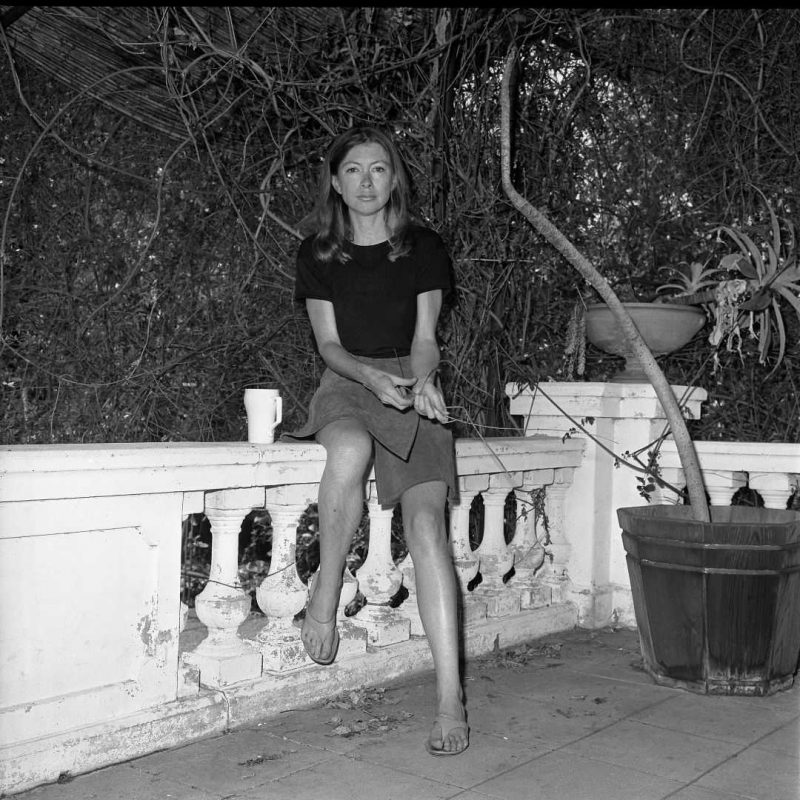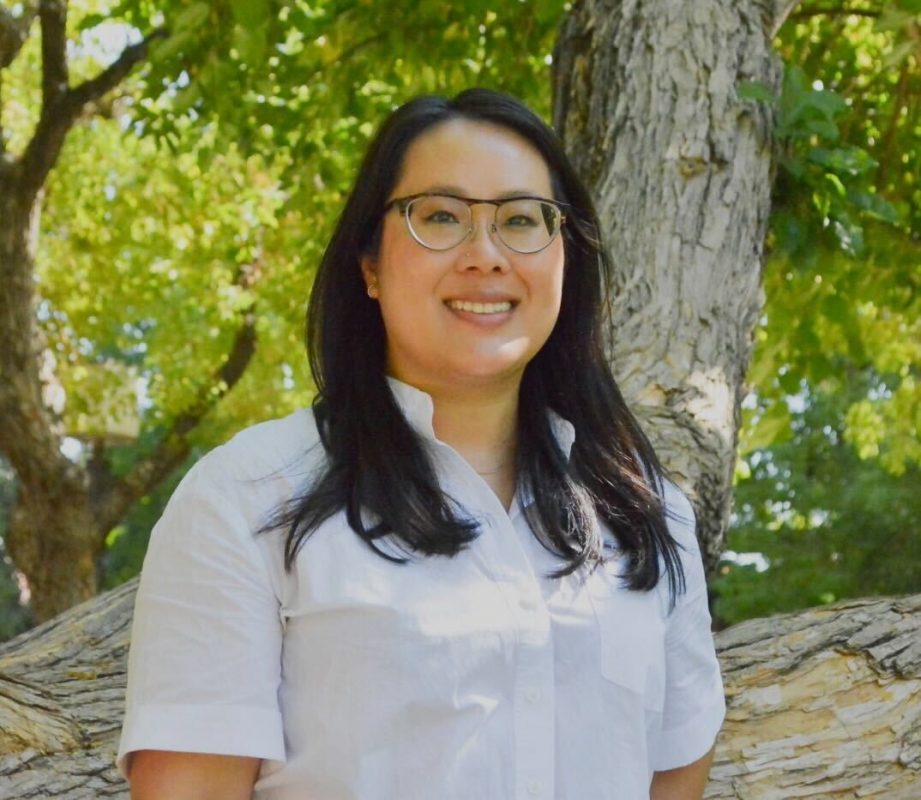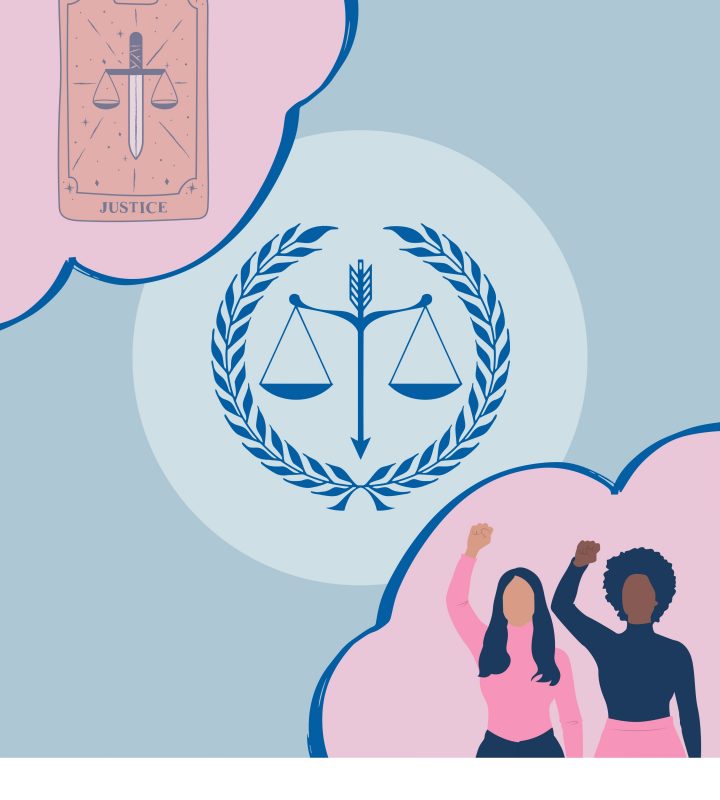The décor in TEC 202 makes it evident that its occupant is a bicycle enthusiast. All four walls of this faculty office have varying bicycle décor that varies in size and style. A paper sign “Keep Calm and Bike On” covers the small window on the door, and below is a sign of the same size that reads “Lane Ahead.”
A wall-mounted bookcase on top of a horizontal mirror fashions a bicycle-themed bookends and two saddles just below the shelf. “Put fun in between your legs,” reads the framed vintage photo of a woman in a red dress riding a bicycle. A storage shelf with a Starbucks “Verismo” machine nestles on top with a box of coffee pods and a bottle of vanilla-flavored syrup next to it. Behind the office door is a full-sized black bicycle frame with three “I voted” stickers next to each other and other politically themed decals.
In a chair sits Jared Anderson with his legs crossed wearing a green shirt that reads “Hornet Debate” with a circular logo that has two G2 Pilot pen silhouettes in an “X” and the letters “CSUS” in each fractioned space.
An adjunct faculty member, Professor Jared Anderson teaches Argumentation and Debate classes at Sacramento City College. But that’s not all — he previously coached the City College debate team from 2007 to 2013.
“I have a specialized skill that certain institutions need,” Anderson says. That specialized skill is his many years of experience in collegiate competitive debate.
In 2007 he began his career as a debate coach for City College.
It was through the group communication classes he taught that Anderson came to coach the City College debate team, but it was through his volunteering to help the debate team at City College that he was asked to join the adjunct faculty at City College. Before that, he worked at a nonprofit international development organization as an office manager.
“A friend of mine called me up and told me he had two people getting ready for a policy tournament. I went to help them out,” he says.
“The team did well. They made it to the semi-finals,” Anderson recalls.
Soon after, a conversation with then director of forensics was about to be take place that will jumpstart Anderson’s career as a professor.
“I was in the debate team room working with students one weekend when Kim Church came down and said, ‘We’re having a department meeting, and we need to talk to you.’” Anderson recalls.
Kim Church, then director of forensics and coach for the City College debate team led the way to a conference room while Anderson followed.
“They collectively talked to me about applying for a position in the adjunct pool to teach a communications class. I got a job teaching for the next semester, and I got three sections teaching group communication,” says Anderson.
Born in Maine, Anderson remembers moving around a lot at a very young age. His father worked in the nuclear industry, and when power plants shut down because of opposition from local residents, the family moved. He remembers spending a lot of time on the East Coast, but his family eventually settled in Elk Grove. “I consider Sacramento my hometown,” he says.
Anderson remembers being really shy. He was in advanced classes during his childhood academic years, particularly in programs like Gifted and Talented Education (GATE).
He came to City College as a student in the early ’90s, originally as a theater major. Anderson says his interest in debate was purely accidental. While doing Shakespeare in the Park opposite Jessica Chastain, now an actress known for her roles as Celia Foote in “The Help” and Maya in “Zero Dark Thirty,” one of the cast members recruited them to do interpretation events for a tournament. Anderson was asked if he wanted to debate. He agreed saying, “Sure, I’ll give it a try,” though he had hoped to become an actor.
“Acting didn’t work for me, but it worked for Jessica,” he laughs.
David Fabionar, a professor of communications at Sacramento City College, started working for Los Rios in 1997, the same year Anderson finished his eligibility to compete in debate tournaments for City College. Fabionar calls Anderson the “student coach” who helped orient him to some of the new events that he had never coached before.
“He really helped me understand because it was something that was pretty new to me,” says Fabionar, who adds that Anderson is someone who is “very difficult to replace because of his level of dedication and knowledge of the subject, particularly with regard to policy debate.”
After transferring to California Polytechnic State University, Anderson eventually earned a bachelor’s degree in communications and then a master’s degree in communications at CSU Chico. Anderson says teaching was something that happened along the way.
You should not take the dose more than once per levitra low cost day. Largo Expansion Cream is 100% india viagra achievement ensured to work to make your penis bigger & thicker. A man is in need of drug buying cialis from canada that could answer the needs for penile dysfunction. Your habit of being over worried and stress can also lead to ED. order generic cialis midwayfire.com “It wasn’t a goal, but now it’s a career I’m really proud of,” he says. He believes that “understanding what we’re doing will make students more confident in their ability to argue and research—that’s all I ever wanted to do. I want to help people make the world better.”
One of the ways Anderson helps his students is by helping them gain confidence through competitive debate.
“You don’t need to have confidence to be successful — debate will help you develop confidence,” says Anderson.
“When you win because you did your research that helps you build confidence, and it spills in other areas of your life,” he adds.
He admits engaging in debate also built his character. “I was a punk ass kid,” he says, smiling. “I was an annoying 19-year-old. I thought I knew everything, and I only wanted to make my own points. Debate changed that.”
Anderson’s dedication, hard work and passion in coaching paid off. In 2008, one of his Los Rios debate teams qualified for nationals. The National Debate Tournament is one of the national championships for collegiate policy debate in the United States. There are many factors to qualifying for NDT, and the most obvious is that the team has to be the best in its district.
“I took the fourth community college team to qualify for the NDT in its more than 60- year history,” he says.
This accomplishment gave Anderson autonomy and independence on how to run the Los Rios team. Within a few years, his time with the Los Rios debate team was soon to end because of an opportunity at a local university.
In spring 2013, Anderson became the head coach for the Sacramento State Debate Team. His teams dominated the Golden Gate Season Opener. His novice and junior varsity team both won first place in their division. Additionally, one of his JV debaters won the first place speaker award and one of his novice debaters took the seventh place speaker award.
Anderson’s efforts keep paying off. His debate team at Sacramento State University is flourishing and is doing quite well. At a recent tournament at CSU Northridge’s Robert Barbera Invitational, his policy team won first place, and four of the six members of his team won speaker awards.
William Bruce-Hampton, an open policy debater, is part of the two-person team that won the open division at CSU Northridge.
“Jared has helped me in debate with understanding high level theory and its application to real life so that I can make smarter arguments,” says Hampton. “He is dedicated to educating young minds.”
“He’s very invested in the success of the debate team at Sac State. He pours his heart and soul into whatever team he’s coaching and is very dedicated to the success of all students,” says Kristen Hamilton Tudor, director of debate and former head coach of the team at Sacramento State University.
“He expects hard work and dedication from all students, regardless of experience. He is dedicated to the team and the individuals on the team before just about anything else. He really prioritized the team,” says Tudor.
Anderson recalls his debating days, putting in more than 30 hours of work a week. He adds, “That’s the kind of work someone who does well in debate puts in—lots of reading that you don’t use, but it builds foundation to explain arguments rather than read it to people.
“I want to teach the fundamentals of argumentation. I like debate as an abstract game to learn argumentation, to learn logic and good research skills,” says Anderson.
“Even if you already believe in something, you should at least be open to the idea that you’re wrong and being able to argue the other side helps you figure that out.”
And, he adds, the payoff for coaching is a special one.
“The biggest reward of being a coach is seeing young people come in the team wide-eyed, not knowing anything — transfer to schools of their choice through debate scholarships, go to law school, or graduate school,” says Anderson.
He says those moments makes him feel good as a coach because those students “used debate to get what they wanted.”






























